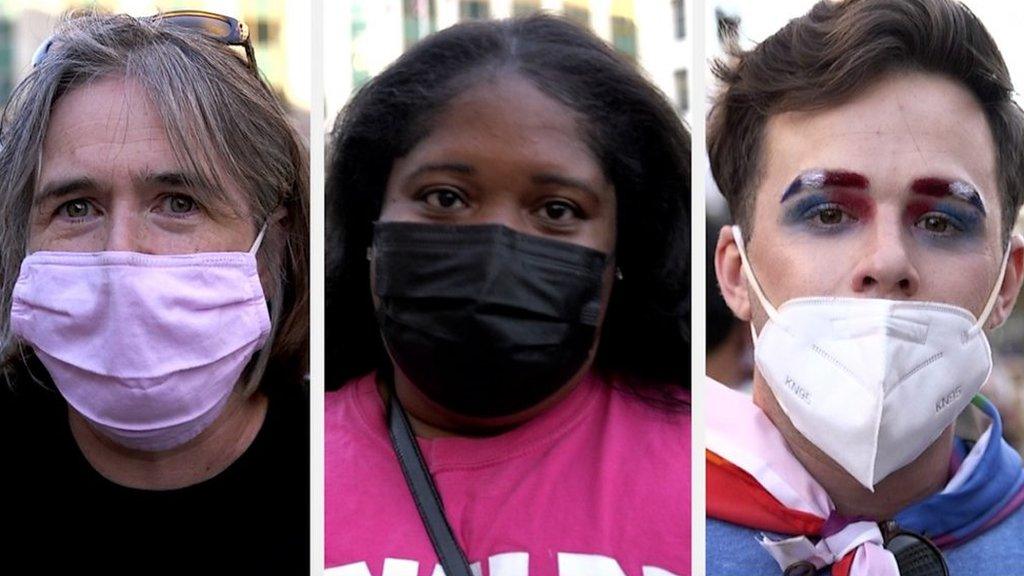US election 2020: How Biden voters think nation can heal
- Published
"My message to Republican friends"
Minutes after Joe Biden had been declared the next president of the United States, people in Washington, DC began to flood the streets.
Streams of people - banging pans, honking horns, clutching signs - moved to the city's Black Lives Matter Plaza, swarming the barricaded border of the White House to celebrate.
For hours after the announcement, masked Biden supporters remained to cheer, dance and sing.
"Everyone is just joyous," said DC resident Andrew Jackson, dressed in a shirt covered with photos of Kamala Harris, now the vice-president-elect. "Look at the atmosphere, it's crazy."
The collective jubilation makes sense here: 93% of voters in Washington this year cast their ballot for the Democratic ticket.
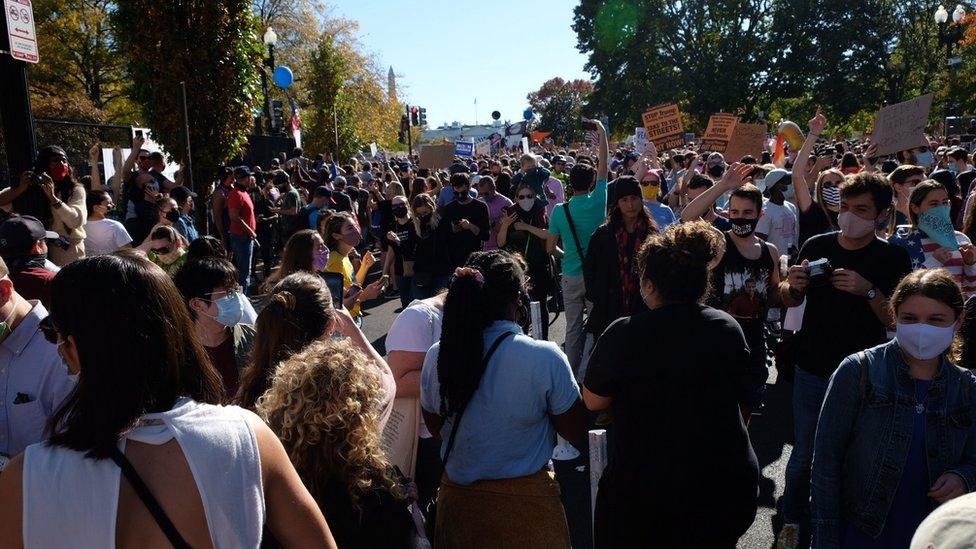
Just beneath the excitement was palpable relief. Every person I spoke to mentioned the anxiety and stress of the past week, and now the exhale knowing that Mr Biden will be president.
"All the anxiety is gone," Mr Jackson said. "The last four years it felt like we were just stuck under a dark cloud, but that cloud's been lifted."
As much as this relief is a response to the Democrats' win, it seemed to be just as much a reaction to the last four years of President Donald Trump - who still has two months left in office.
For every sign or t-shirt celebrating Mr Biden or Ms Harris, there was one directed at Mr Trump - mocking the current president and applauding his looming departure. And just as often as a voter would reference Mr Biden, they would mention Mr Trump, and what they described as his divisive, damaging agenda.
"Everybody's excited to see the back of Trump," said Margaret O'Gorman, 54. "We are in a complete U-turn from where we were."
Repairing that division has been an animating theme of Mr Biden's candidacy. He has vowed to be a president for all Americans, to restore the "soul of America" and fix the national discord he blames on Mr Trump.
It might be a tough sell for some 70 million Americans who cast their ballot for Mr Trump this year - roughly eight million more than sent him to the White House in 2016. But for those gathered outside the White House on Saturday, it is a welcome message.
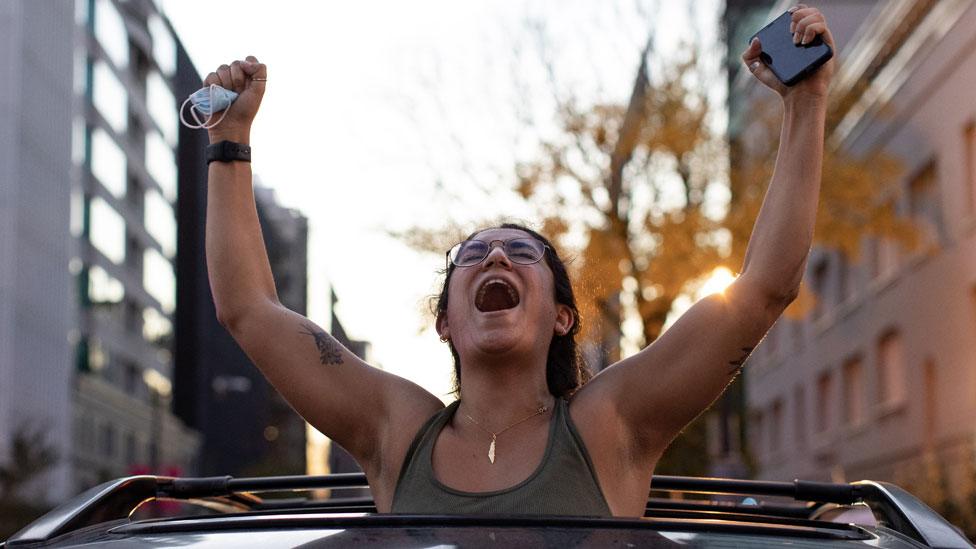
For some in Washington DC the elation was unconfined
Brandishing a "Former Republicans for Biden" sign, Ken Wright said he is confident that the next president will reach across the aisle, and embrace Republican voters. "Biden is about compromise, Trump was not. I'm very optimistic that Biden's going to do what he's always done."
"I think this atmosphere proves that the country can ease now back into some regularity," said Vincent Moten, holding the hand of his partner, Derrick Petit. "Now that we're here, the idea is what can we do to come together. Let's agree on some baseline stuff - I'm a human, so I should have the rights that you have and then start from there.
For Anisley Valdas, 32, the key to moving forward is to understand where Trump voters are coming from, "why people feel angry, why people feel disenfranchised".
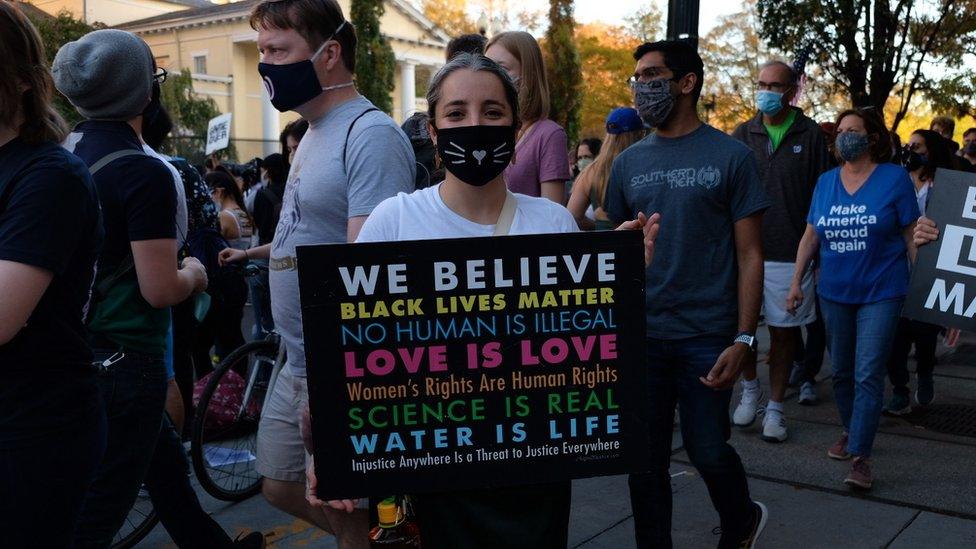
Anisley Valdas said she thinks Joe Biden will be a president for all Americans
"I think trying to understand people's pain and their suffering is a way to start to get us on the right track," she said.
Born in Cuba, America's political divides cut through her family. In this year's election, Ms Valdas voted for Mr Biden - splitting from her sister, cousins and the majority of Cuban immigrants in her hometown of Miami.
Ms Valdas said she was "angry and disappointed" that her own family had voted for a candidate who, she said, "demonstrated such hatred and bigotry", for people of colour. She hasn't spoken to her sister since learning the results, she said, after an argument this week about the election.
When she does, she said, she will tell her that "Biden is the president for everyone. You just don't know it yet."


- Published7 November 2020
- Published13 November 2020
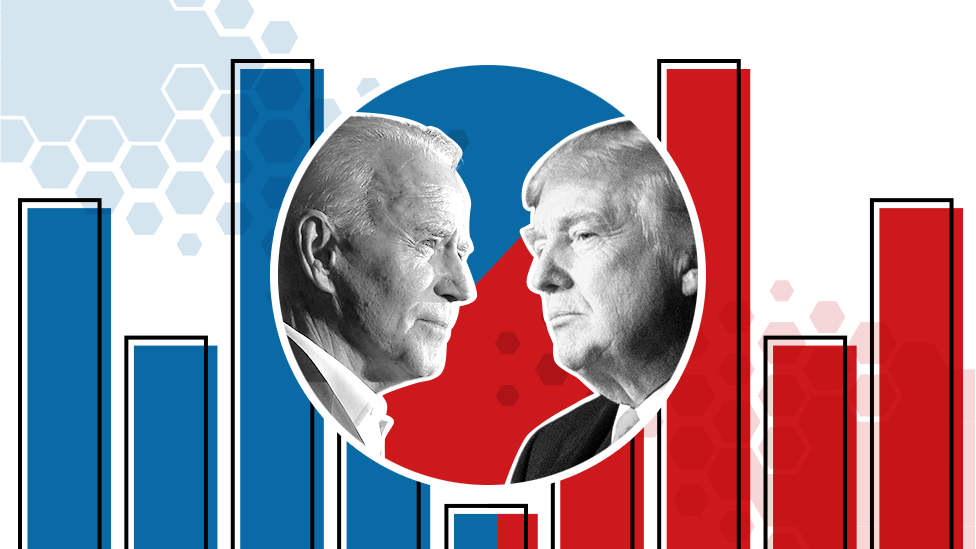
- Published7 November 2020
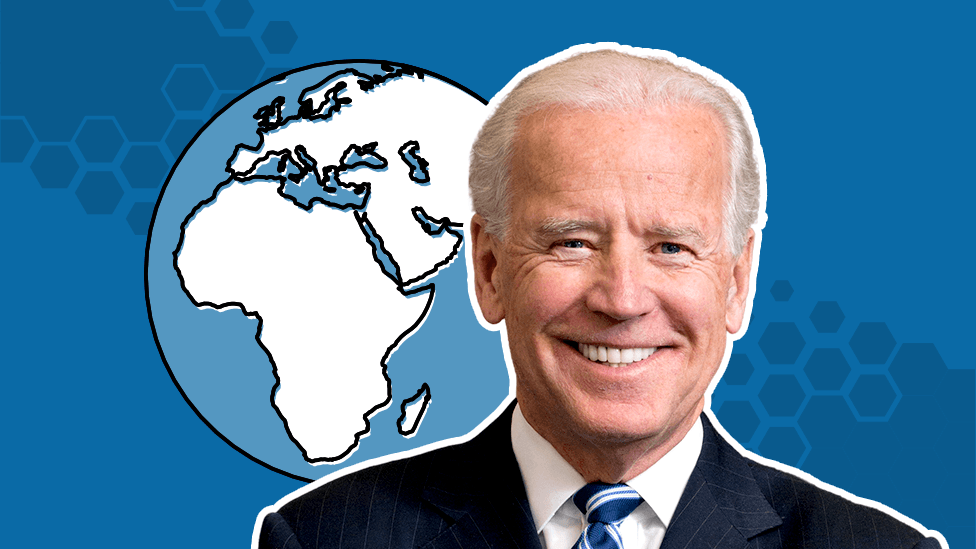
- Published8 November 2020
